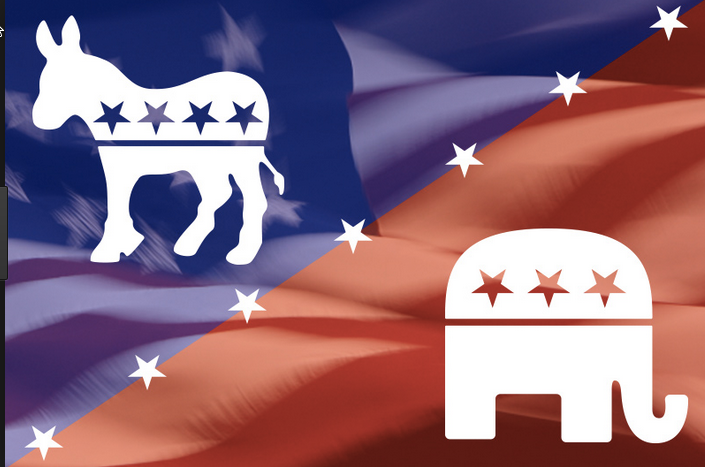First, Republicans are professional politicians. Yes, so are most Democrats. But the parties are not the same.
The Democratic Party is a coalition of interest groups, with some shared views but also a lot of conflicts, and politicians get ahead through their success in striking compromises and finding acceptable solutions.
The G.O.P., by contrast, is one branch of a monolithic structure, movement conservatism, with a rigid ideology — tax cuts for the rich above all else. Other branches of the structure include a captive media that parrots the party line every step of the way. Compare the coverage of recent political developments on Fox News with almost everywhere else; we’re talking North Korea levels of alternative reality.
And this monolithic structure — lavishly supported by a small number of very, very wealthy families — rewards, indeed insists on, absolute fealty. Furthermore, the structure has been in place for a long time: It has been 36 years since Reagan was elected, 22 years since the Gingrich takeover of Congress. What this means is that nearly all Republicans in today’s Congress are apparatchiks, political creatures with no higher principle beyond party loyalty.
. . .
And even now, with the Trump/Flynn/Comey story getting worse by the hour, there has been no significant breaking of ranks. If you’re waiting to find the modern version of Howard Baker, the Republican senator who asked “What did the president know, and when did he know it?” you’re wasting your time. Men like that left the G.O.P. a long time ago.
Does this mean that Trump will be able to hold on despite his multiple scandals and abuses of power? Actually, yes, he might. The answer probably hinges on the next few special elections: Republicans won’t turn on Trump unless he has become such a political liability that he must be dumped.
And even if Trump goes, one way or another, the threat to the Republic will be far from over.




